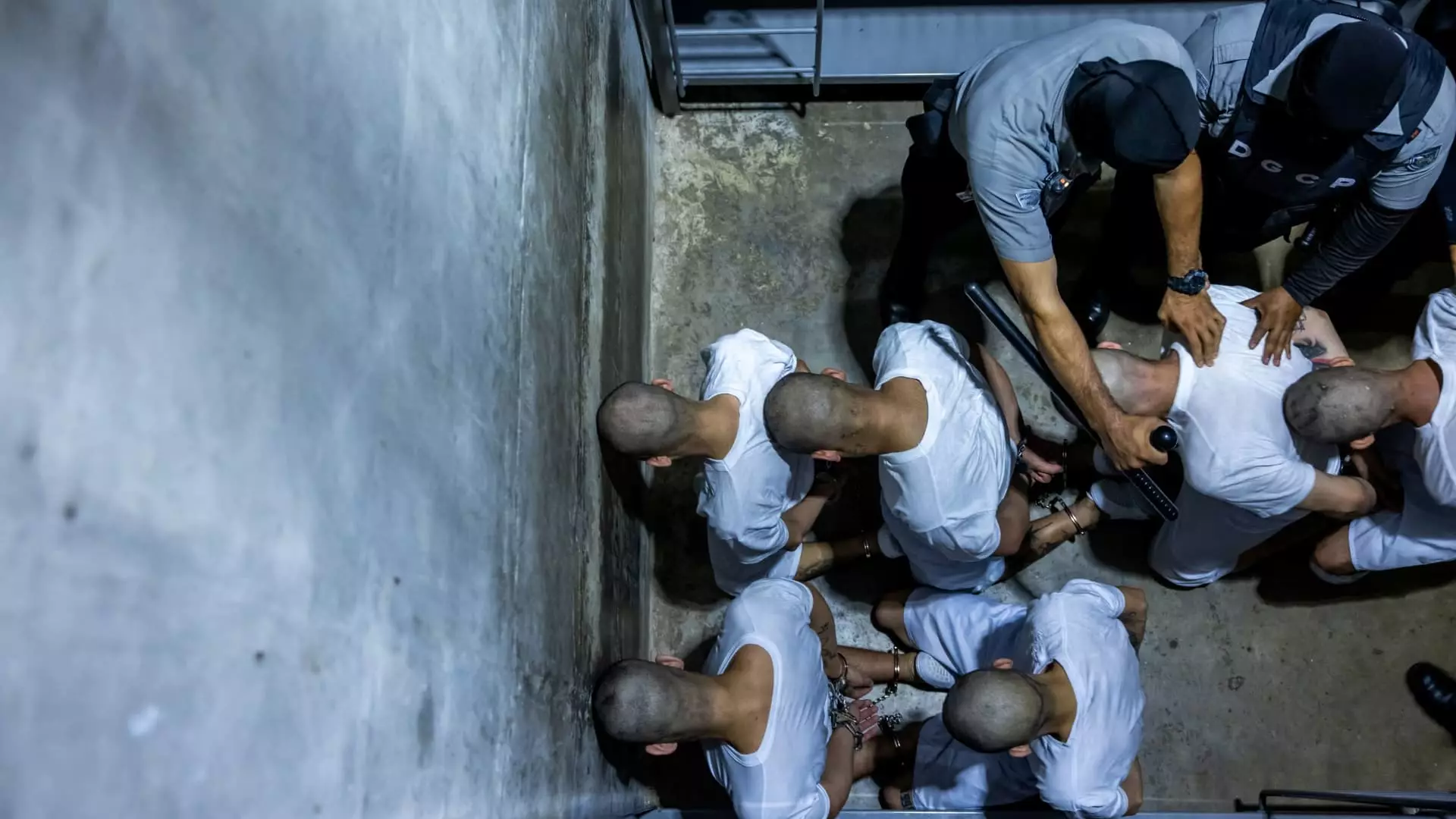The saga of Kilmar Abrego Garcia illustrates a stark and troubling reality within the United States immigration system. It’s not merely an isolated incident; it represents a failure of legislative and judicial checks that should protect individuals from wrongful expulsion into danger. The case echoes with alarm bells: a 29-year-old man, lawfully pursuing his dreams in the United States as a sheet metal apprentice and legally authorized to work, found himself trapped in a bureaucratic nightmare. Mistakenly deported to El Salvador, a country notorious for gang violence, Abrego Garcia’s story exposes the urgent need for reform in how immigration authorities operate within this contentious political landscape.
The decision to remove him was predicated on an uncorroborated assertion that he was affiliated with the infamously violent MS-13 gang. Such unchecked assertions underscore the fragile line between governance and injustice. The Justice Department’s plea that Abrego Garcia’s return order was “patently unlawful” reeks of desperation—a bureaucratic shield used to deflect responsibility for the very lives that are at stake. The idea that administrative errors can lead to such drastic outcomes is not just troubling; it is a bitter indictment of a system that has long since lost sight of its humanity.
The Role of the Judiciary
Chief Justice John Roberts’ decision to pause the imminent deportation reflects a glimmer of hope amid this disarray. Judicial intervention is crucial not solely for Abrego Garcia but for the integrity of the justice system as a whole. As public servants, judges must act as safeguards against executive overreach, especially in matters that risk lives. This judicial check becomes particularly critical when the Executive branch invokes antiquated laws to justify draconian measures, such as the deportation of individuals on questionable grounds.
What’s unsettling is the implication that a judicial order could be treated as a mere inconvenience to be sidestepped. Solicitor General D. John Sauer’s claims that recent judicial interventions are part of a systemic pattern to undermine President Trump’s agenda presents a dangerous framing. It insinuates that judicial oversight is an obstruction rather than an essential aspect of governance. A functioning democracy relies on all branches of government being held accountable; undermining this principle in favor of political expediency is not just reckless; it’s perilous.
Combating Mischaracterization
The narrative woven by the Trump administration categorizes Abrego Garcia as an MS-13 member, a characterization his attorneys vehemently dispute. Such harmful mislabeling extends beyond individual prejudices; it reflects a wider pattern of scapegoating specific immigrant groups as a diversion from systemic issues. In the context of the polarized political atmosphere we’re currently entangled in, it becomes alarmingly easy to dehumanize individuals, painting them as threats rather than viewing them as contributing members of society.
In a country built on principles of refuge and opportunity, this approach is not only unjust but antithetical to the core values of American democracy. The implications of labeling individuals unfairly extend far beyond their personal lives; they affect entire communities and contribute to a culture of fear and misinformation. The responsibility lies not only with the government but also with citizens to confront these narratives head-on, advocating for a more nuanced understanding of the immigrant experience.
Institutional Accountability and the Path Forward
The haunting image of an individual being cast out into the very environment they sought to escape should galvanize us all toward action. Accountability must reside at multiple levels of government, including Immigration and Customs Enforcement (ICE), which has too often operated without sufficient oversight. The evident missteps in Abrego Garcia’s case call into question broader practices and preparedness, as immigration agents must be held to a higher standard—given their mandate affects lives.
Ultimately, this case isn’t solely about one man; it represents the larger systemic failures that necessitate urgent reform. A call for change transcends political affiliations and demands acknowledgment of shared humanity. We must take collective responsibility to protect the vulnerable, ensuring that justice prevails over bureaucratic negligence. This is not merely an administrative issue; it’s a moral imperative that defines our character as a nation.


Leave a Reply